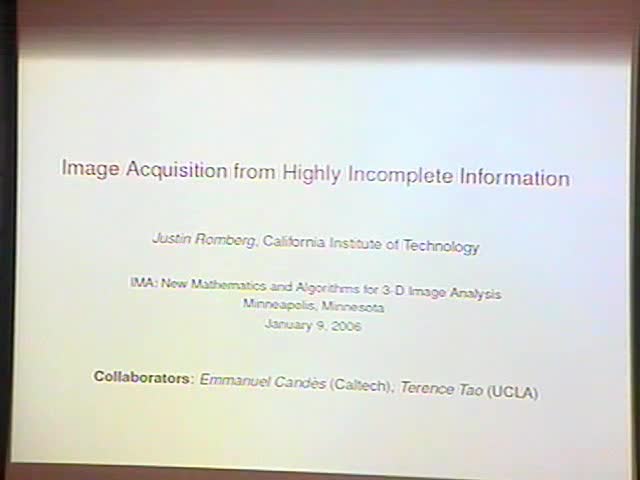Image Acquisition from a Highly Incomplete Set of Measurements
Presenter
January 9, 2006
Keywords:
- Image analysis
MSC:
- 62H35
Abstract
Many imaging techniques acquire information about an underlying image
by making indirect linear measurements. For example, in computed
tomography we observe line integrals through the image, while in MRI
we observe samples of the image's Fourier transform.
To acquire an N-pixel image, we will in general need to make at least
N measurements.
What happens if the number of measurements is (much) less than N
(that is, the measurements are incomplete)? We will present
theoretical results showing that if the image is sparse, it can be
reconstructed from a very limited set of measurements essentially as
well as from a full set by solving a certain convex optimization
program. By "sparse", we mean that the image can be closely
approximated using a small number of elements from a known orthobasis
(a wavelet system, for example).
Although the reconstruction procedure is nonlinear, it is
exceptionally stable in the presence of noise, both in theory and in
practice.
We will conclude with several practical examples of how the theory
can be applied to "real-world" imaging problems.
